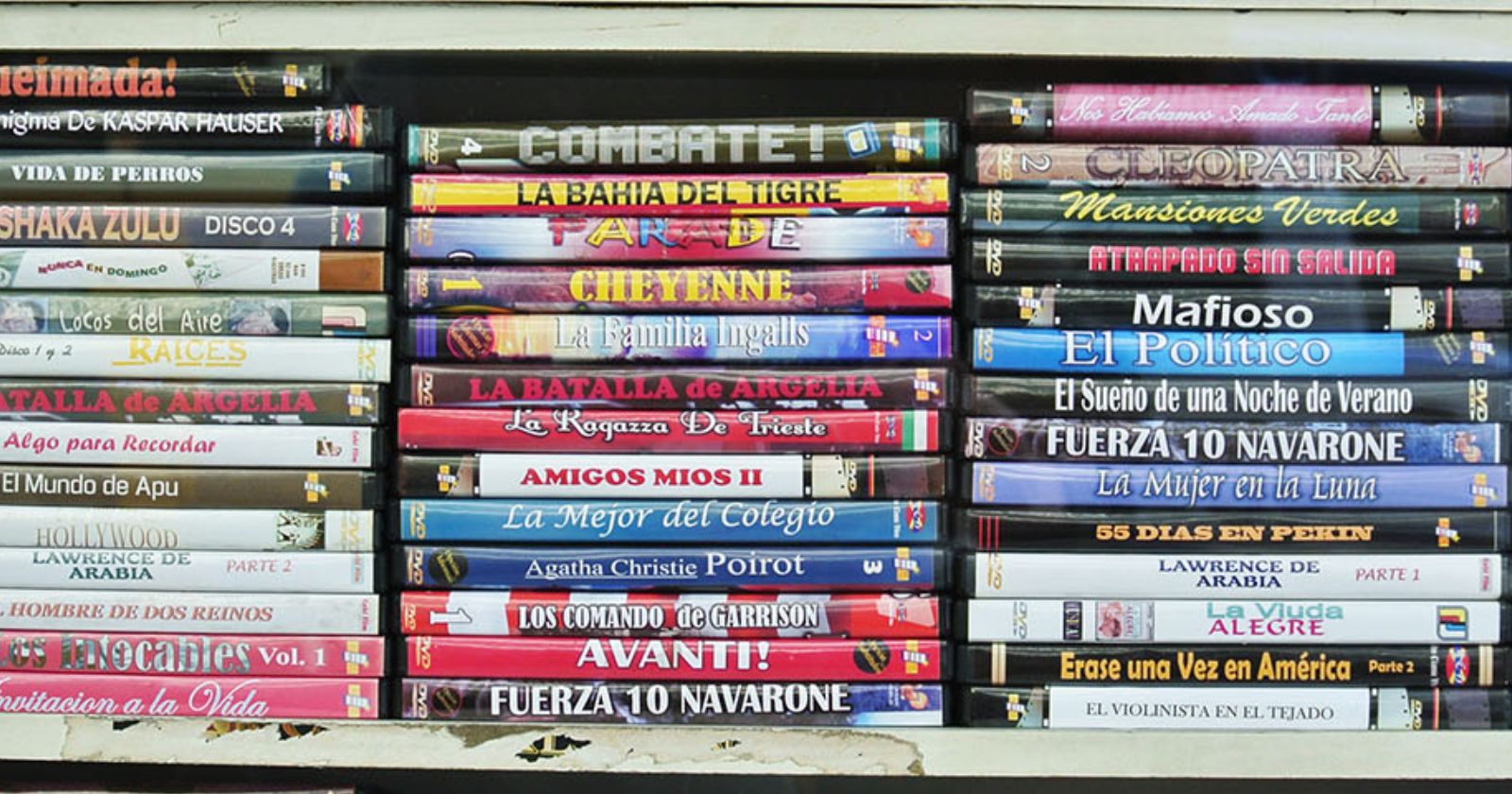Got a stack of VHS, CDs, DVDs, or Blu-rays you want rid of? Join the queue! These are some of the items most commonly given away to charity shops, but unfortunately apart from the latest Blu-rays, there’s rarely enough demand for second-hand movies to satisfy the supply. That leaves recycling…
CDs, DVDs, and Blu-rays are recyclable, as are their cases, – although they are rarely taken by kerbside recycling programs. VHS are trickier – the plastic casing can be recycled but it is difficult to recycle the insides, which are made of mylar tape.
Read on for more information with what to do with each of these, as well as some upcycling ideas.
Can You Recycle CDs, DVDs and Blu-rays?
Yes and no. The component materials which CDs and DVDs are made of are recyclable, but it is difficult to separate them. For this reason, you can’t put them in your recycling bins for collection. But, there are specialist recycling services that can recycle them, so you certainly shouldn’t put them in your waste either!
Although the component parts – polycarbonate plastics and aluminium – are easy and profitable to recycle, the materials are fused together and not easy to break apart. Because of the issues of separating the materials, DVD/CDs are not acceptable in a single stream recycling process and can’t be put in your recycling bins for collection.
Unfortunately, this means that many of these products end up in the trash instead, even though there are specialist recycling services available that can turn waste discs into new products.
How are CDs, DVDs and Blu-rays Recycled?
The recycling process involves putting the CDs into a special machine called a granulator (the waste boxes are put in a different recycling machine as they’re made from a different type of plastic). This machine shreds the discs into very small powdery fragments.
These fragments are then loaded into a special machine that will remove any ink residue metal and lacquer. Coming out the other end is 99.5% clean polycarbonate ready to be reused again in other products. Your CD might end up as a mobile phone, in traffic lights, used as cladding, as more discs, or in many other items.
Can You Recycle CD Jewel Cases?
Jewel cases are the square, often clear (although they can come in many colors) plastic cases that are used for music CDs, but you’ll also find if you purchase blank DVD-Rs.
CD jewel cases are recyclable. They are made from injection-molded polystyrene (PS 6). Styrofoam recycling is widespread, so you may be able to leave these at the curbside for collection.
Can You Recycle DVD Cases and Blu-ray Cases?
DVD and Blu-Ray cases are recyclable. They are made from plastic: polypropylene, or PP 5, for the hard part, and polyethylene terephthalate, or PET 1, for the translucent film. However, these plastic parts are rarely accepted in curbside recycling programs which means they have low recycling rates.
How are DVD & Blu-Ray cases recycled?
While the process isn’t necessarily widespread, the PP 5 and PP 6 plastics can be melted down and formed into new products like electronics, toys, and building materials. These hard plastics are commonplace, and there is no shortage of products being made that can take advantage of them. The issue is that the cost of recycling means it is often cheaper to create new plastic products rather than recycling existing ones.
Is throwing away DVD & Blu-Ray cases bad for the environment?
Yes, trashing your case is bad for the environment. Because they are plastic, they do not decompose, and so any sent to landfill will remain there long after the owner has gone! Additionally, should the waste end up in an incinerator, these plastics make noxious fumes that are bad for both the environment and human health.
While throwing your old ones in the trash and calling it a day may seem like a convenient option, if you can recycle them, both your health and the earth will thank you.
Can You Recycle VHS Tapes?
The VHS casing can be recycled but it is difficult to recycle the insides, which are made of mylar tape. There are still some collectors of VHS tapes, so you may be able to sell or give away some of your collection.
How To Dispose of CDs and DVDs
You as an individual have the responsibility for ensuring that your waste does not pollute the land, pollute the air, or use unnecessary and increasingly scarce resources. Remember, it is not just music CDs and DVDs that are part of this problem; millions of boxes of software go to landfills every year as well.
You have three options:
1. Reduce Your Usage
Reduce the demand for CD/DVDs. Download software and games and subscribe to streaming services for your music and movies. If you need to buy blank CDs or DVDs, buy ones that can be rewritten, so you can use them again and again.
2. Recycle Your CDs, DVDs, and Blu-rays
Don’t put your CDs and DVDs in the waste disposal. Instead, send them to a specialist company for recycling.
The company that we suggest that works internationally is Terracycle. Terracycle has a wide range of waste recycling services, including electronic recycling, plastic recycling programs, and CD/DVD programs. They’ve raised more than $44 million for charity through their recycling efforts and their programs operate worldwide.
If you are in the USA you may also want to check the CD Recycling Center of America and their program.
3. Reuse / Upcycle Your CDs, DVDs, and Blu-rays
If you are finished with it, try giving unwanted discs away to someone else (or a charity store) rather than putting it in the trash. Shopping for second-hand items is also a good idea. This is better than recycling because it doesn’t use any energy or other resources.
You can also reuse CDs in craft projects. Here are a few options:
Mosaics
If you place them in a bowl of nearly boiling water and leave them there for ten minutes, the discs will soften. You can then use scissors to cut the softened discs into any shape you want. These pieces can then be used to make attractive mosaics that can be attached to tabletops, walls, or other pieces of furniture.
Coasters
Cover your discs with material of your choosing to turn them into chic coasters that you can reuse again and again


